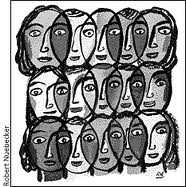
Transnationalism, Gender and Migration. The Intersectional challenges of Social Mobility
Avant le 1er septembre - Îles Canaries
International conference organised by : Maria José Guerra (ULL) and Laura Oso (UDC)
IUEM- Instituto Universitario de Estudios de las mujeres- Universidad de La Laguna.
ESOMI- Sociology of International Migrations Research Team - Universidade da Coruña
13-14 November 2014
Campus Universitario de la Universidad de La Laguna, Villa de Adeje, Canary Islands, Spain.
The key objective of this Conference is to articulate the debate surrounding issues of gender and migration from a Citizenship, Inter-generational and Social Mobility approach. Over the past two decades there has been a growing interest in the study of mobilities from a gender perspective. Literature has focused mainly on shedding light on the active participation of women in population movements, with particular attention on the transnational approach. Research has centred principally on the analysis of the reproductive role of migrant women as domestic servants, sex workers and care givers within the process of globalization. Literature also expanded around the issue of the transnational family. Nevertheless, less attention has been paid to the study of gendered mobilities from a Citizenship and Human Rights approach, as well as to the intergenerational and social mobility perspectives. The economic recession, which dates back to 2008, has had a tremendous impact on migrants and has led to a gendered restructuration of the strategies devised by households in an attempt to overcome the current climate of financial adversity. Within this context, transnational families are dealing with intergenerational social mobility strategies in order to face the economic recession (including complex forms of mobility, return, etc.). Lastly, gender and migration debates have focused essentially on non-qualified female workers, so scant attention has being paid to women professionals on the move.
The Conference will cover three main areas of discussion :
1-Transnational Citizenship, Gender and Human Rights :
The migratory phenomenon fosters transnationality. In this context, it is necessary to question the restrictive nature of a model of citizenship linked exclusively to guaranteeing the rights of individuals belonging to a nation state. The ongoing debate over the deterritorialization of citizenship cannot be isolated from the changes brought about by globalization and mobilities in different levels : from what we call translocality to transnationality. However, the gender and intersectional approaches in Migration Studies are still marginal in their theoretical and empirical dimensions. Rendering gender-branded structural injustice visible from a transnational approach is crucial in order to put forward new models of citizenship that advocate social and economic rights, in keeping with the normative framework of human rights. In this sense, we urgently need to firstly rebuild the framework of contributions to the possibility of a non- androcentric transnational citizenship and secondly, to propose normative orientations for mobility policies related to the political, social, economic, sexual and reproductive rights of women in order to respond to the principle of gender equality.
2-Gendered Social and Spatial Mobilities in a context of economic crisis : an intergenerational approach
The general aim of this area of discussion is to study the transnational social mobility strategies and trajectories of migrant families in a context of economic crisis. We will look into the way households negotiate family social mobility strategies by analysing the actions individuals choose in order to climb social ladders, as well as the series of personal and collective itineraries they undertake within the social hierarchy and the transnational social space. Our analysis will be based on an inter-generational and gender perspective. What is the impact of migrants’ transnational social and economic strategies on their social mobility trajectories ? And on those of their children ? How do they differ in terms of gender ? Do some transnational strategies represent social stagnation for some household members, yet revert on others in the form of upward social mobility ? We will analyse the articulation of economic, affective and social practices of immigrants, and how this articulation determines the social mobility of households and gender relations, in a context of economic crisis.
3-International Strategies of Professional Women : Challenging Mobility in their Life Course
The mobility of professional women has recently been the focus of an emergent interest by policy makers and scholars since globalisation has modified migration patterns, increasing flows and diversifying movers’ profiles. Highly-skilled women move because they are impelled to get away from family and patriarchal societies in search of freedom or sexual rights, personal fulfilment, forced by the dynamics of the global market or by the institutional culture of career progression, economic independence, commitment to their partners and family goals. A second point of interest concerns the life course, particularly because decisions are heavily dependent on age and family issues.
Firstly, figures reveal that young women opt for international mobility for educational reasons, although they disappear at postdoctoral level and when in senior positions. Secondly, partners were associated with negative mobility rates, but dual career couples provide more egalitarian family environments.
Submission guidelines :
The conference organisers invite paper proposals following the three areas of discussion suggested in different world regions. We invite interested participants to submit an abstract of no more than 300 words. We expect each proposal to clearly articulate the subject matter and its relevancy to the conference theme. Proposals should include the paper’s title and the author’s name, affiliation, and contact information, as well as a bio of 100 to 125 words describing the author’s background, accomplishments and research interests. Please sent the proposals to tenerifeconference@gmail.com before 01/09/2014.
Successful candidates will be notified by October 1st. Drafts of papers for presentation will be due by November 1st 2014.
Registration and other information (hotels, etc.) will be available from July 30th at : http://esomi.es (Transnationalism, Gender and Migration Conference)
Fichiers de syndication :
Statistiques :
Le site contient 4383 articles
